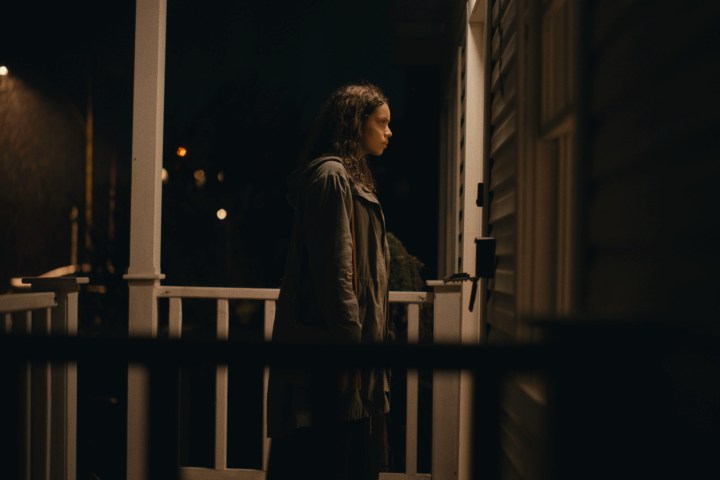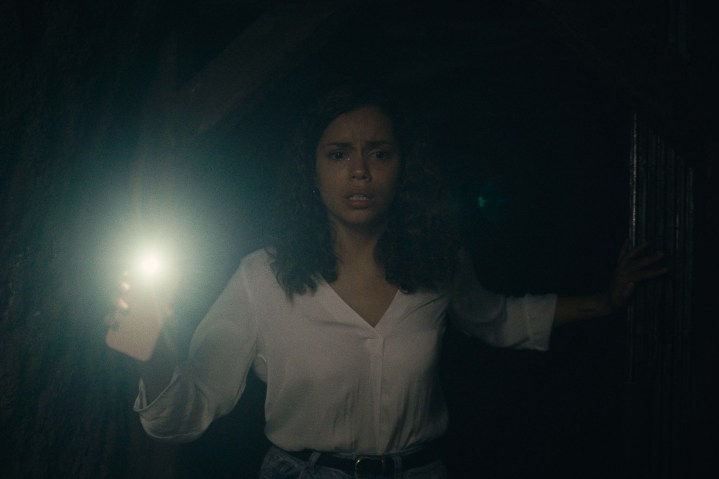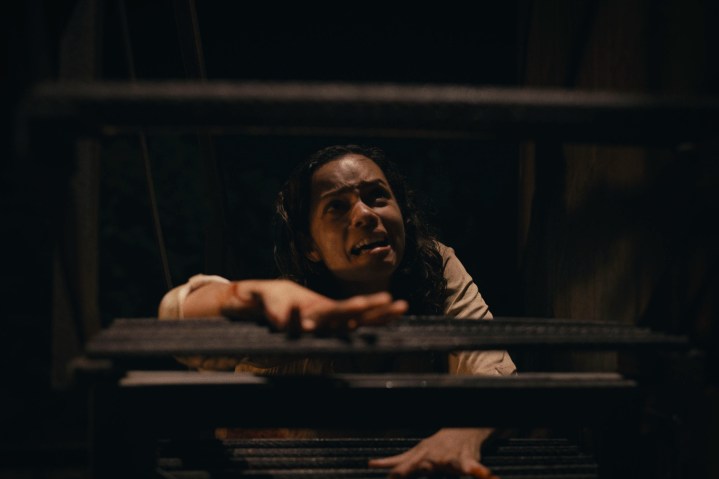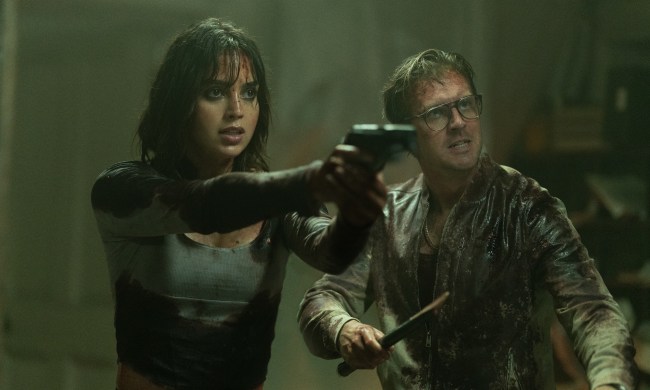Barbarian is a true swing for the fences. The film, which marks writer-director Zach Cregger’s solo directorial debut, is a horror mash-up that seems in certain moments like a modern riff on The Texas Chain Saw Massacre and at other times like a loving homage to the kind of campy horror comedies that Sam Raimi has perfected. When it’s at its best is when Barbarian feels like it is combining those influences to become a horror ride that is simultaneously absurd and terrifying.
More than anything else, Barbarian is unlike anything else you’ll see in a movie theater this year. That kind of remark doesn’t always equal praise. Uniqueness alone is, after all, not enough to save a movie that is otherwise coming apart at the seams. In the case of Barbarian, though, the film’s commitment to delivering a genuinely unpredictable and tonally-challenging experience is what makes it so memorable. To watch it is to get swept up not only in the dramatic stakes of the film’s story but also in the audacious, go-for-broke creative spirit at the center of it.

Like all great horror movies, Barbarian’s plot appears, at first, to be deceptively simple. The film opens with Tess Marshall (Georgina Campbell) arriving in the middle of a rain-soaked night at a Detroit rental home only to discover that the place has been double-booked. When she knocks on the house’s door, Keith Toshko (Bill Skarsgård) answers and invites her inside, offering her a reprieve from the night’s rain while they come up with a solution for their problem.
It doesn’t take long for Keith to offer to sleep on the house’s couch so that Tess can take its sole bedroom. Despite being initially (and understandably) hesitant about the idea, Tess agrees and later finds herself sharing a surprisingly enjoyable, flirtatious night with Keith. The next day, however, Tess discovers a secret tunnel in the rental home’s basement, one that leads her straight into what can only be described as an absolute nightmare.
To say anything more about Barbarian’s plot would be to spoil a lot of the fun of it. The film’s early trailers and promotional materials have all wisely shown little beyond Tess’ unnerving discovery of her rental house’s secret, subterranean passageway, and for good reason. While Barbarian takes its time kicking its plot into full gear, Tess’ discovery marks the moment in Barbarian when the film’s sense of dread begins to steadily ramp up before eventually reaching a moment of sheer horror that is sure to leave viewers both terrified and laughing in complete disbelief over what they’ve just witnessed.

From there, Barbarian begins to add an increasing number of layers to its nesting doll of a narrative. Not all of the film’s detours work — its attempts at satirizing the state of modern Hollywood feel particularly extraneous at times — but the episodic structure of Cregger’s script keeps Barbarian chugging along at a refreshingly quick pace for the entirety of its second and third acts. Cregger’s keen understanding of visual storytelling also helps prevent Barbarian’s various flashbacks and tangents from bogging down the film.
That said, the true nature of Barbarian’s story eventually presents Cregger with two options: He can either submerge viewers in its full, horrifying weight, or he can prevent the darkness of Barbarian’s backstory from becoming suffocating by leaning into his comedic impulses. Cregger, wisely, chooses the latter option, and while his direction never quite matches the madcap visual style of a horror comedy auteur like Sam Raimi, Cregger does push Barbarian’s undeniably terrifying story to its most absurd extremes in the final act.
By choosing to inject Barbarian’s final third with several doses of pure absurdity, Cregger manages to heighten the film’s thrills and scares while also dulling the impact of its darkest moments. That blending of tones allows Barbarian to ultimately occupy an odd kind of liminal space, one that fittingly exists between reality and fantasy. The film’s cast members, meanwhile, all seem to understand the tone that Cregger is going for in Barbarian. Justin Long, in particular, turns in a memorably funny, tongue-in-cheek supporting performance, though, his role in Barbarian’s plot is better left unspoiled.

Outside of Tess’ initial excavation into the film’s central underground tunnel, Barbarian never delivers any truly memorable set pieces, which prevents it from feeling like a game-changing genre title in the same vein as, say, Evil Dead 2. While the film’s Detroit setting feels intentional and Cregger’s script does seem occasionally interested in exploring that city’s history as well, Barbarian’s few thematic ideas never fully come together.
However, by the time it has reached its cheeky final needle drop, Barbarian has still managed to outgrow its familiar influences and become a singular piece of work. That’s a notable accomplishment for a film that is so clearly influenced by such specific horror titles.
Barbarian’s disinterest in achieving a kind of greater thematic relevance also doesn’t take away from just how truly entertaining it is as both an unpredictable, Shyamalan-esque puzzle box and as a nerve-shredding horror comedy. The film is one of this year’s most impactful genre experiments. Unlike the unsuspecting woman at the center of its story, horror fans won’t regret stepping into the strange and horrifying tunnel that is Barbarian, which contains innumerable surprises that are alternatively scary and funny, but almost always unexpected.
Barbarian is set to hit theaters on Friday, September 9.



